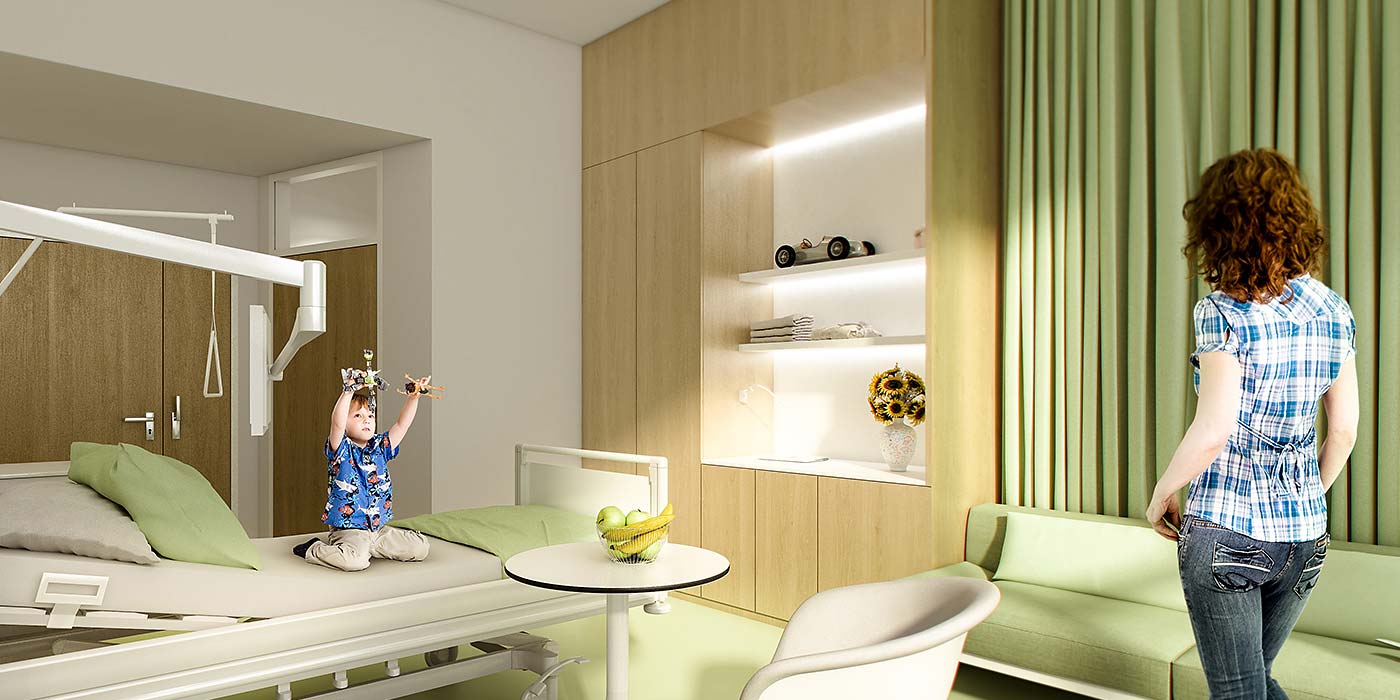We don’t just talk about patient orientation. We build it!
The spatial concept
In 2013 the INITIATIVE commissioned kopvol architecture & psychology (Rotterdam) with the development of qualitative space concepts for Unsere Kinder- und Jugendklinik Freiburg. In developing these concepts kopvol worked closely together with future users of the clinic including patients, parents and staff members. The results were fully innovative solutions that combine medical care and architecture to create a “healing and supporting environment”:
RUN-Cluster (Room for Upgrowth, Development and Normality):
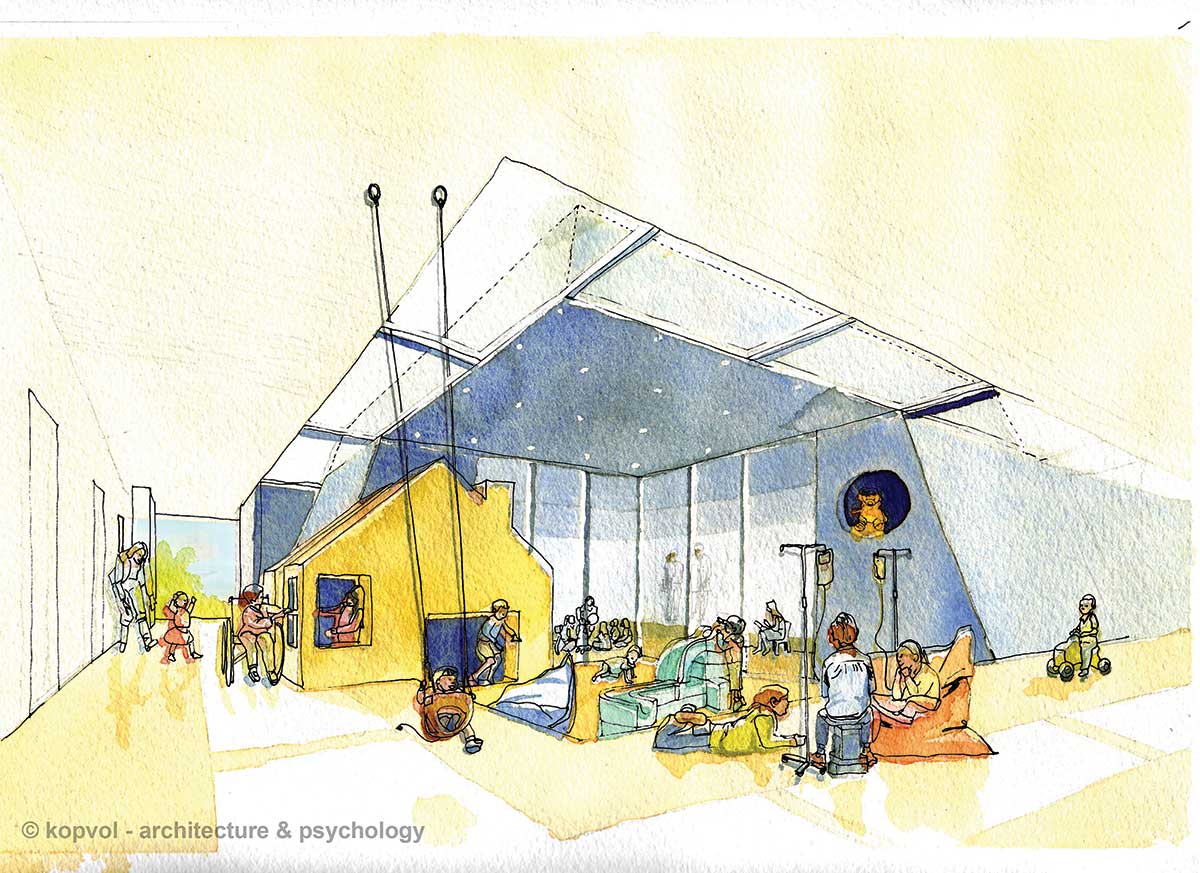
Through the fusion of psychosocial and pedagogical areas with the lounge area, the Room for Upgrowth, Development and Normality is formed in Unsere Kinder- und Jugendklinik Freiburg. It connects several wards and brings together children, adolescents and their families. In this RUN-Cluster the clinical stay of those who are physically able to participate is spatially clearly structured along the lines of everyday life into: ‘sleeping in the patient room’, ‘eating in the common room’, ‘playing in the play area’, ‘learning in classrooms’ and ‘moving and developing in the therapy and sports areas’. Special enclosed areas for adolescents and young adults, on the other hand, are designed to enable intermittent social retreat and individual recreation. The RUN-Cluster likewise includes special therapy rooms and a pleasantly designed area where parents can exchange information and retreat to.
With the innovative RUN-Cluster, an in-patient environment emerges in Unsere Kinder und Jugendklinik Freiburg that contributes proactively to an important aspect of medical care: namely, to foster children and their parents beyond the scope of necessary medical treatment.
This includes the new concept of the Parent-Child-Buffet which allows the family to share meals and be together.
Anti-Waiting Area (out-patient centers):
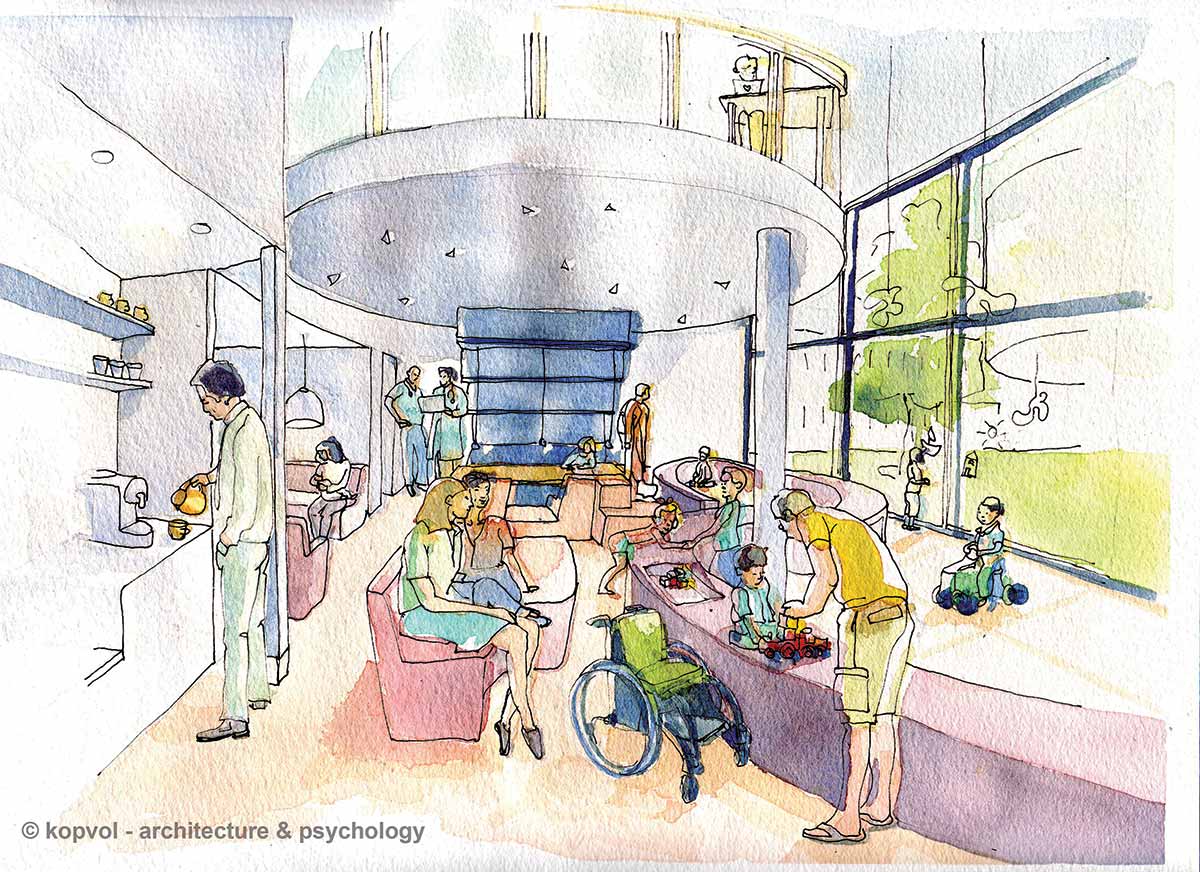
Unsere Kinder- und Jugendklinik Freiburg realizes a completely innovative concept in its out-patient centers: the Anti-Waiting Area. This is an area where children, adolescents and their families can find precisely the diversion and relief they need. It is possible to have a chat, to move or play, but there are also areas to retreat to and read, work or do homework. Even taking a short nap after long, exhausting examinations is imaginable. It is important that the parents and their child are always within sight contact of each other and so maintain their sense of security and control. From the Anti-Waiting Area there is an open view of the outdoors and readily available refreshments such as coffee and tea. A kiosk is nearby to make waiting even more comfortable. This helps to reduce anxiety, tension and exhaustion in children, adolescents and parents and prepares them optimally for consultations, examinations and therapies.
Space for Emotional Security and Care:
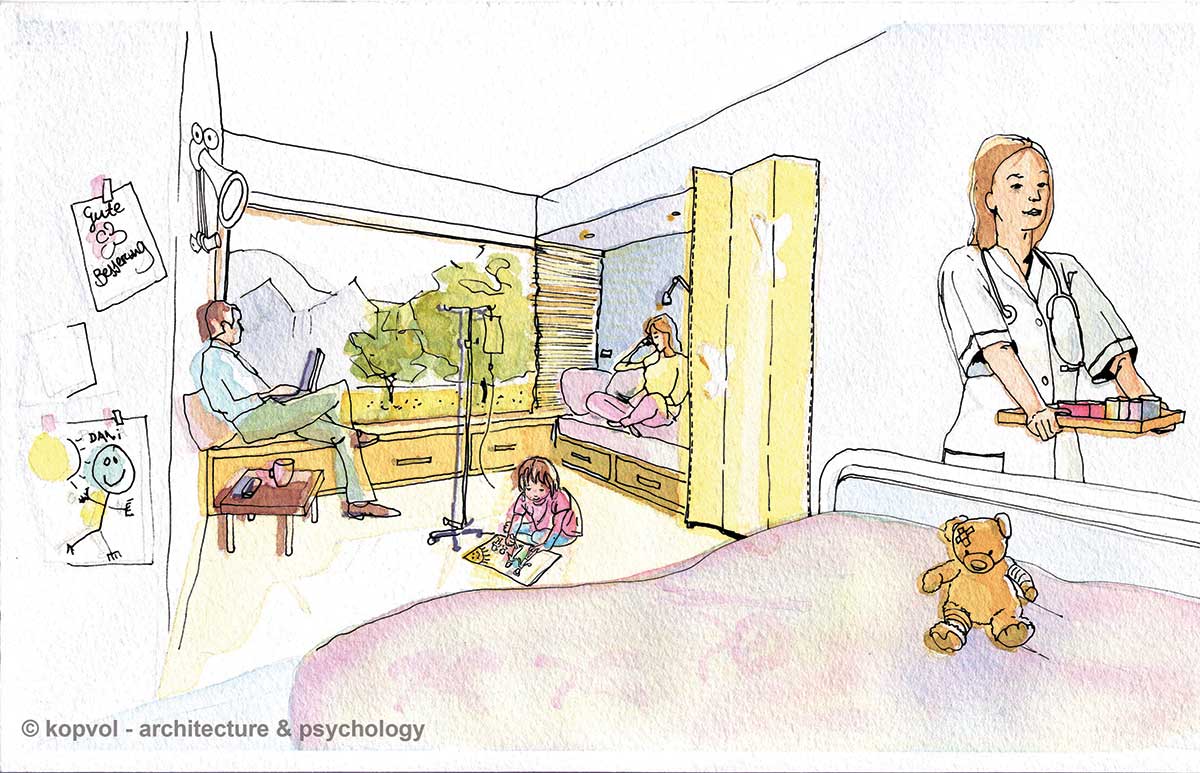
Down to the smallest unit – the patient room – we strive to foster spatially and emotionally the closeness of parents and their child while at the same time leaving enough space for both. Zoning, alcoves, storage space and creative free space allow privacy, control, individuality and retreat. Our rooms earn the name Space for Emotional Security and Care. Sufficient space stimulates a flexible and dynamic use by family, friends, therapists and nurses. Separately installed parents’ beds prevent early morning disturbances, and a privacy screen allows individual circadian rhythms for parent and child.
The Forum of Health Education and Health Promotion with an integrated family center:
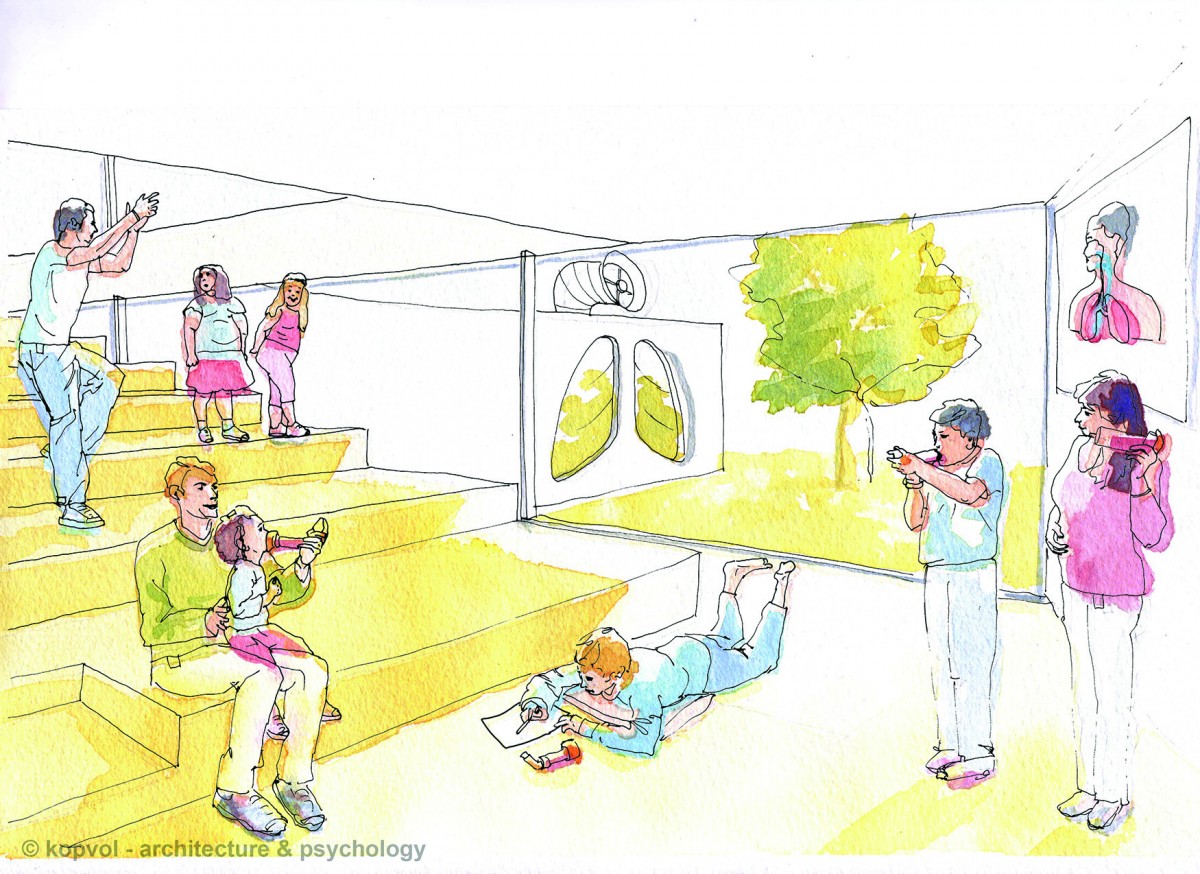
We are creating a Forum for Health Education: Our goal is to foster competence in dealing with sickness and health-influencing factors. The forum will offer diversity, for example, in the form of courses for chronically sick children, adolescents and their parents. These will include, among other things, counselling for diabetics and children with metabolic diseases, courses for asthmatics, nutrition counselling with cooking classes, relaxation training for pain patients and make-up courses for adolescents suffering from cancer, and much more. In our openly structured rooms courses for groups can be given alongside individual counseling; and practical training as well as continuing education series can be offered for self-help groups, school classes, parents and the interested general public.
Research Labs that maintain proximity to patient care:
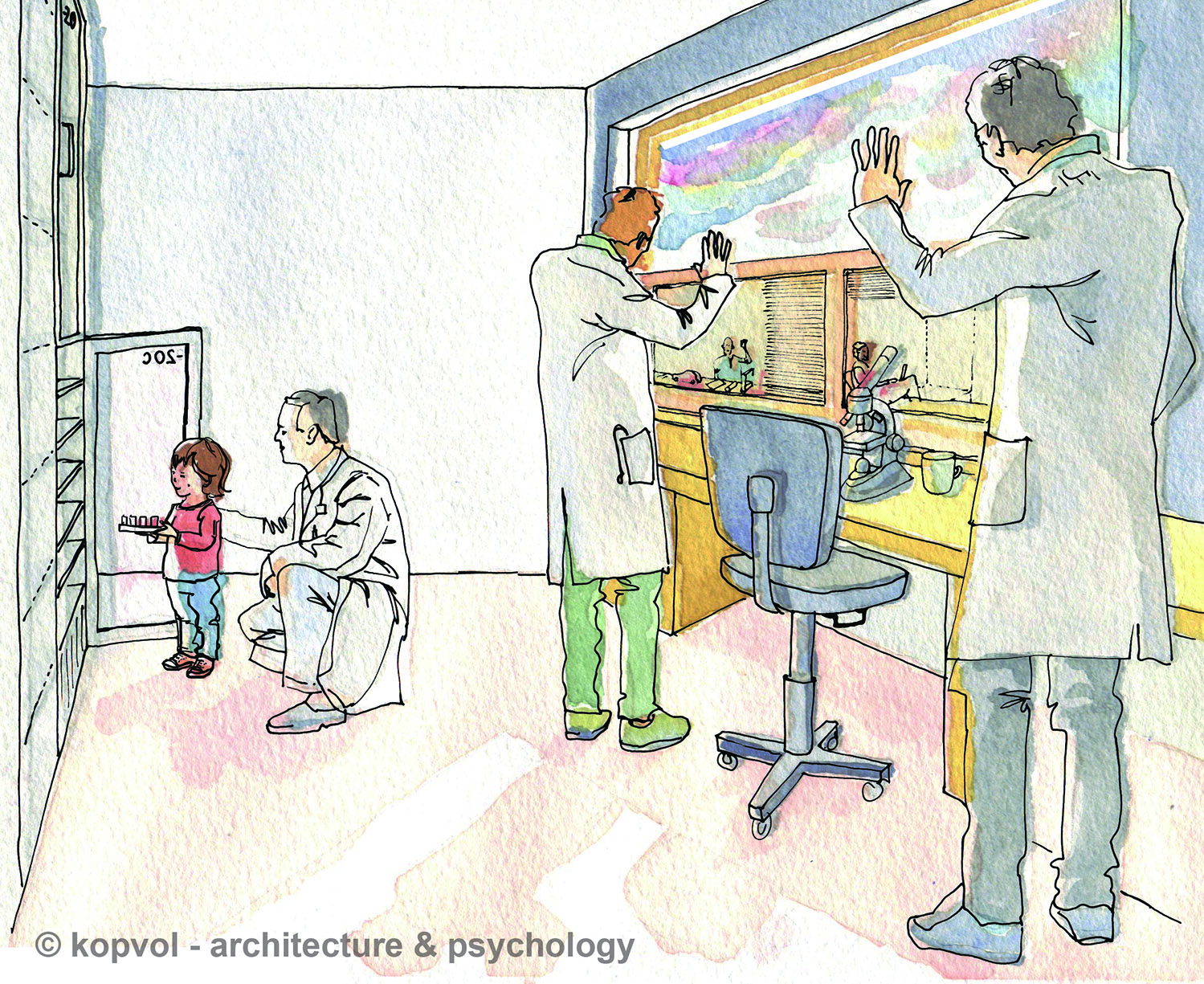
Research Labs that maintain proximity to patient care expedite the prompt feedback between research and patient care for better recovery. Through the spatial connection of clinical monitoring, researching reference centers and modern laboratory research, we provide differentiated, less invasive and precise diagnostics. Children and adolescents are thus spared unnecessary and stressful examinations. In clinical studies we test the effectiveness and safety of new treatments. For children and adolescents with severe, incurable or rare diseases we facilitate quick access to innovative therapies. The close proximity of our researchers creates in a special way a practical orientation of their work as well as a great sense of ethical responsibility. It makes them more aware of the needs of our patients.
- The Centralized ‘Working World’ – areas that maintain closeness to patient care: open interdisciplinary rooms for all staff members promote the inter-professional exchange in the daily.
- Sustainability – guaranteed by our 100% Tail Wind Model.
To learn more about our spatial concepts, the architecture, the background or the scientific underpinnings, please order our booklet by e-mail:
Vollmer & Koppen (2015): Unsere Kinder- und Jugendklinik Freiburg. A hospital for the region, a clinic for the entire world! INITIATIVE (Ed.), Freiburg i. Br. (ISBN 978-90-824778-0-1) 25,- EUR
